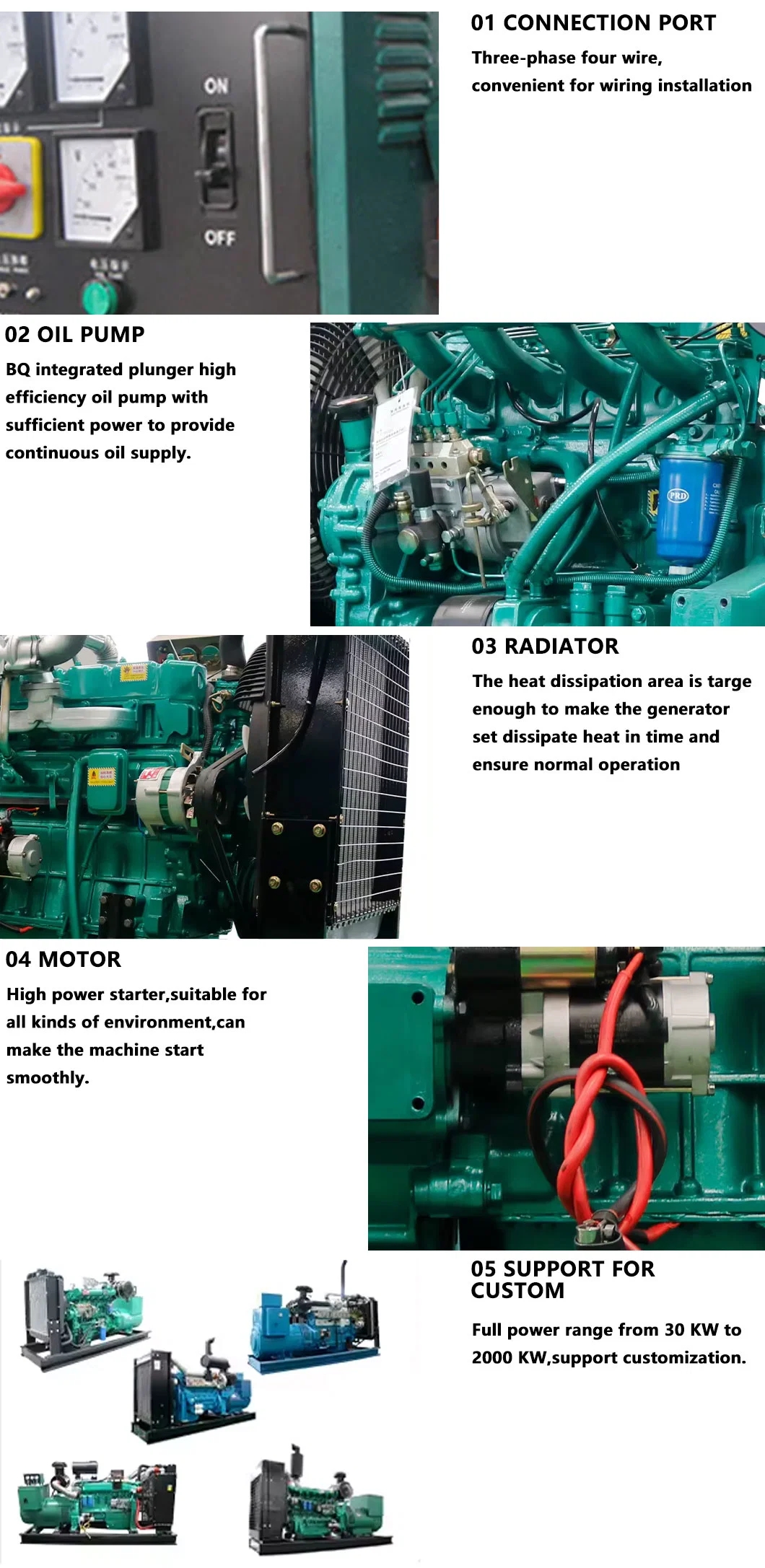Diesel Generators for Hybrid Power Systems Enhancing Energy Sustainability and Reliability
75kw diesel generator for backup power In the quest for sustainable and reliable energy solutions, hybrid power systems have emerged as a promising approach to meet the growing energy demands of the modern world. These systems combine multiple energy sources, such as renewable sources like solar and wind, with traditional sources like diesel generators, to create a more stable and efficient power supply. In this article, we will focus on the role of diesel generators in hybrid power systems, exploring their benefits, challenges, and potential for enhancing energy sustainability and reliability. Background on Hybrid Power Systems Hybrid power systems are designed to integrate different energy sources to maximize efficiency, reliability, and sustainability. By combining renewable energy sources with traditional generators, hybrid systems can overcome the intermittent nature of renewables and ensure a stable power supply even in adverse conditions. In recent years, hybrid power systems have gained popularity in various applications, including off-grid communities, remote industrial sites, and emergency backup power systems. Role of Diesel Generators in Hybrid Power Systems Diesel generators play a crucial role in hybrid power systems by providing reliable backup power when renewable sources are unable to meet the energy demand. While renewable sources like solar and wind are clean and sustainable, they are also intermittent and weather-dependent, which can lead to fluctuations in power output. Diesel generators serve as a reliable backup option, ensuring continuous power supply during periods of low renewable energy generation or inclement weather conditions. Benefits of Diesel Generators in Hybrid Power Systems 1. Reliability: Diesel generators are known for their reliability and robustness, making them ideal for providing backup power in hybrid systems. They can quickly ramp up to full capacity and operate continuously for extended periods, ensuring a stable power supply when renewable sources are unavailable. 2. Energy Security: Diesel generators enhance energy security in hybrid systems by providing a reliable backup option in case of grid outages or fluctuations in renewable energy generation. This helps prevent disruptions and ensures continuous power supply, especially in critical applications such as hospitals, data centers, and telecommunications facilities. 3. Cost-Effectiveness: While renewable energy sources are becoming more affordable, diesel generators still offer a cost-effective solution for backup power in hybrid systems. The initial capital investment for a diesel generator may be higher than that of renewables, but the operational costs are relatively low, making them an attractive option for ensuring energy reliability. 4. Flexibility: Diesel generators are highly versatile and can be easily integrated into existing power systems or used as standalone units in off-grid applications. Their flexibility allows for seamless integration with renewable energy sources, enabling a balanced and reliable power supply in hybrid systems. Challenges and Considerations Despite their benefits, diesel generators in hybrid power systems also present certain challenges and considerations that need to be addressed for optimal performance and sustainability: 1. Environmental Impact: Diesel generators are known for their emissions of pollutants such as nitrogen oxides (NOx), particulate matter, and carbon dioxide (CO2). While advancements in engine technology have led to cleaner and more efficient diesel generators, their environmental impact remains a concern, especially in terms of air quality and greenhouse gas emissions. 2. Fuel Availability and Storage: Diesel generators require a constant supply of diesel fuel, which may pose logistical challenges in remote or off-grid locations. Adequate fuel storage and management are essential to ensure uninterrupted operation of diesel generators in hybrid power systems. 3. Maintenance and Operation: Diesel generators require regular maintenance, servicing, and monitoring to ensure optimal performance and longevity. Proper maintenance practices, such as regular oil changes, filter replacements, and engine inspections, are essential to prevent breakdowns and ensure reliable operation. 4. Noise and Vibration: Diesel generators can produce noise and vibrations during operation, which may be a concern in residential areas or sensitive environments. Proper acoustic insulation and vibration damping measures can help mitigate these issues and minimize the impact on surrounding communities. Future Outlook and Innovations As technology continues to advance, the future of diesel generators in hybrid power systems looks promising. Innovations in engine design, emissions control, and fuel efficiency are driving the development of cleaner and more sustainable diesel generator solutions. Additionally, integration with energy storage systems, smart grid technologies, and advanced control systems is enhancing the overall performance and efficiency of hybrid power systems. Conclusion Diesel generators play a vital role in hybrid power systems by providing reliable backup power to complement renewable energy sources. While they offer numerous benefits in terms of reliability, cost-effectiveness, and flexibility, challenges such as environmental impact, fuel availability, and maintenance need to be addressed for sustainable and optimal performance. With ongoing advancements in technology and a focus on sustainability, diesel generators are poised to continue playing a key role in enhancing energy sustainability and reliability in hybrid power systems. 